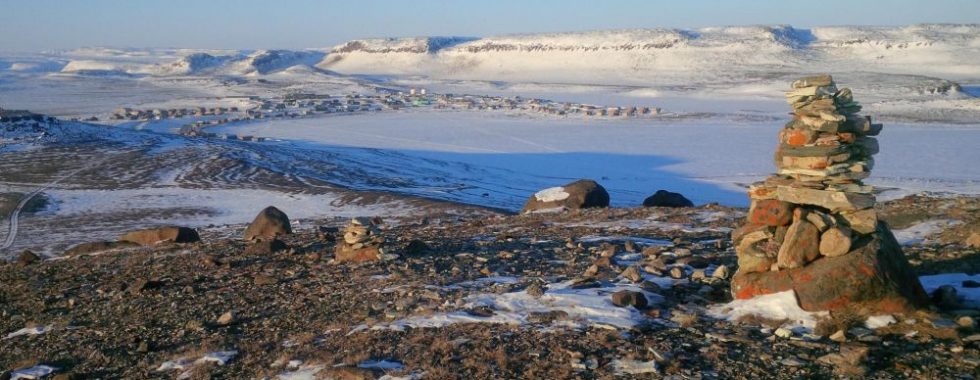The Arctic Regional Engagement Partner of Future Earth Coasts coordinates transdisciplinary research and action in the northern circumpolar region to support the core agenda of enhanced sustainability in the Earth’s coastal zone. As climate change is increasingly evident along Arctic coasts and challenges the resilience of coastal communities and related human activities, it is exacerbating the impacts of remoteness, limited population size, economic and technical capacity constraints, evolving governance, and globalization in high latitudes.
Since April 2016, Memorial University of Newfoundland (MUN) has hosted the Arctic REP offcie in Canada’s eastermost city of St.John’s, Newfoundland and Labrador. As the only university in the province, Memorial has a “special obligation to the people of Newfoundland and Labrador” written diretly into its mission. Inclusive, interdisciplinary, and publically engaged research collaborations with all stakeholders are a key feature of the university’s work to promote responsible and sustainable development of cold ocean and Arctic resources.
They are even more essential to fulfilling its commitment to address challenges faced by the people who live on the coast and make their lives and livelihoods from cold oceans: the North Atlantic, Labrador Sea, and Arctic waters. Cold-ocean and Arctic-related research, teaching, learning, and public engagement are significant areas of expertise and activity at Memorial University. Cold Ocean and Arctic Science, Technology, and Society (COASTS) is a pan-university strategic initiative that seeks to grow the university’s impact and meet its “special obligation” to the people of Newfoundland and Labrador.
This type of co-design and co-development is fundamental to the work of Future Earth Coasts and is represented by the shared flagship Circum-Arctic Coastal Communities KnOwledge Network ( CACCON ). Based on community-identified priorities, CACCON builds and mobilizes knowledge through collaborative processes to better understand and address the profound changes occurring in Arctic coastal communities, changes that threaten community well-being, and the sustainability of vital ecosystems and human populations. In partnership with ArcticNET ( a Canadian Network of Centres of Excellence) and other Arctic knowledge networks and programs, including the Exchange for Local Observations and Knowledge of the Arctic (ELOKA) and Arctic-COAST, CACCON promotes consensus and collaboration to advance local knowledge availability and accessibility for adaptation planning and sustainable development in Arctic coastal communities and regions.
Other notable examples of transdisciplinary research, Further examples of co-design and co-development, in which researchers in the network are involved, include:
- SmartICE (Sea-ice Monitoring And Real-Time Information for Coastal Environments) combines adaptive technology, remote sensing and local Inuit knowledge to promote safe sea ice travel.
- Adaptive Sustainable housing | Housing, Health and Well-Being across the Arctic | a collaboration between university researchers, Inuit/northern researchers and Inuit partner organizations.
- Mackenzie-Beaufort Breakup Forum | Mobilizing local knowledge on real-time and near-term conditions during breakup, a critical annual environmental transition affecting access, safety, and emergency response in the region of the Mackenzie Delta, host to several Gwich’in and Inuvialuit communities and the second largest delta on the Arctic Ocean.
- MEOPAR | Collaboration with the Marine Environmental Observation, Prediction, and Response (MEOPAR) Network of Centres of Excellence on ensuring availability of appropriate weather information supporting safety in marine transport, community resupply, and indigenous access to country food required for food security in many northern coastal communities.
The aim of the Arctic REP is to expand the Arctic network represented by CACCON to a truly pan-Arctic network to facilitate more community to community knowledge and capacity sharing. This includes inter-regional cooperation on issues of common interest to all circum-Arctic communities, and facilitate in Arctic knowledge exchange for global coastal sustainability.
The Arctic REP will also capture and highlight ‘bright spots’ and best practice in stakeholder/community engagement leading to more sustainable communities, including bottom-up actions in relation to sustainability policy goals. Through sharing these successful examples of multi-stakeholder and multi-disciplinary actions that focus on community priorities, we hope to highlight good practice, identify gaps or elements related to examples of failure. We hope that the resulting insights may be a catalyst for change including improvements in governance.
Our solutions-oriented, transdisciplinary, co-design approach to the challenges facing coastal communities embodies the core philosophy of Future Earth and is relevant globally.
CACCON is established as a distributed network of local (community or regional) knowledge centres exchanging information, including data, technical capacity, adaptation strategies, or other types of knowledge including Indigenous Knowledge within the community or with peer communities in the circumpolar north.


